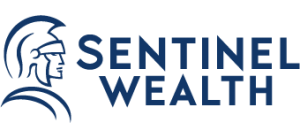PROGRAMMING YOUR AUTOPILOT
When I first wake up in the morning, I think I would describe myself as being a little stupid. On occasion, I have gone to work without my belt, tie and sometimes even my wallet. It doesn’t happen that often but over the years, I have learned I just can’t trust myself first thing in the morning. I’m clearly not much of an early morning person.
Immediately after waking up, I’m slow and I have to remember too many things when trying to get ready for work. I need a simple process and I don’t want to be thinking about small things – especially if my mind is already getting focused on the day.
So I have developed a method to make this stage of the day easy and reliable. When I get home from work, at the same time that I change out of my work clothes, I select the clothes I will wear the next day and hang them separately. Everything is ready.
I have a similar problem with travel. For many years, it took me way too long to decide what to pack, and I’ve then either taken too much, or too little. I know why it happened – I wanted to be absolutely optimal with what I took on a trip. Not too much, but everything I wanted. That desire to optimise has cost me time, so I developed a formula and checklist to make it simple. The formula depends on whether the trip is for business or pleasure, and the number of nights away. But it’s now pretty easy.
Believe it or not, I am not that organised. I still get distracted by too many things, and still have some habits I would like to change, but at least I have reduced the number of unnecessary errors and time-wasting practices.
To be strong, know your weaknesses
Getting to know yourself around money is more important. Research shows that the cost of an average investor’s behavioural errors is 4% of their investment portfolio per year. That’s a lot of money. From my personal experience with thousands of clients over 36 years, I’m convinced that the single biggest contributor to financial success is personal financial awareness. The most successful people, financially, know their strengths and weaknesses and how they react to various financial stimuli.
There is also an inverse correlation between knowing yourself and financial anxiety. The better people know themselves, the less financial anxiety they experience. The less aware, the greater the anxiety.
Knowing yourself means more than just knowing that you find it hard to change a habit that is not good for you. It’s more than just knowing that you struggle to control your spending or that you can’t help yourself looking at the value of your portfolio daily. It’s not good enough to just know the actions that are harming you. To know yourself to the extent where your habits won’t damage your success means understanding the origin of the problem, and having a system to neutralise any negative impacts.
The catalyst, tool, and process
Getting to really know yourself is not difficult. First, it requires an understanding of the “pain“. How bad is it? Nothing is going to change unless there’s enough pain.
Next, understand the circumstances in which it occurs, or the catalyst. Often, people who live hand-to-mouth feel relief and freedom when there’s money in the bank, and that catalyst means they then spend more. Others panic when the value of their portfolio falls, and they need to change something. Fear of running out and status anxiety are also common drivers of errors.
Designing a suitable process involves a catalyst, a tool, and a process. My catalyst is my suit jacket. When I hang it up, it triggers the process of taking out clothes for the next day. An investor I know uses a 15% fall in the market to trigger a complete sell. He cannot accept the anxiety and accepts the potential underperformance in the longer term.
The final step is the process itself. It needs to be simple and designed to take over when you can’t think for yourself. The assumption is that you’re either stressed or ‘stupid’ so the process has to be simple. It can’t rely on you thinking at the time. My default investment process when prices fall is ‘income, quality and price paid’. Returns over three years or comparing to benchmarks are other ways.
Being self-aware is no guarantee to avoiding errors but being able to observe your own behaviour around money is a critical component to success, not only to avoid errors but also to alleviate stress.


